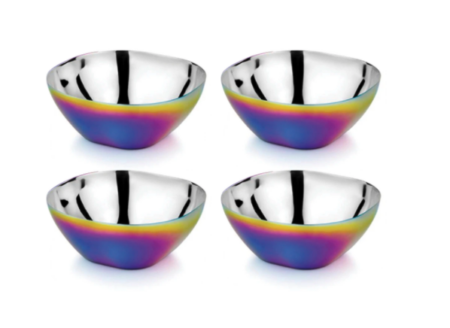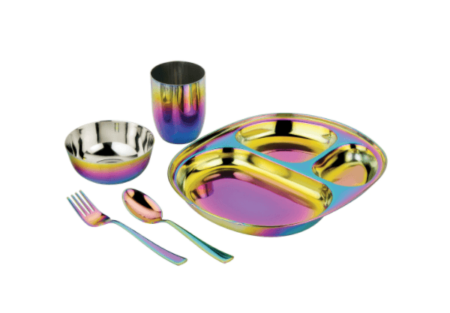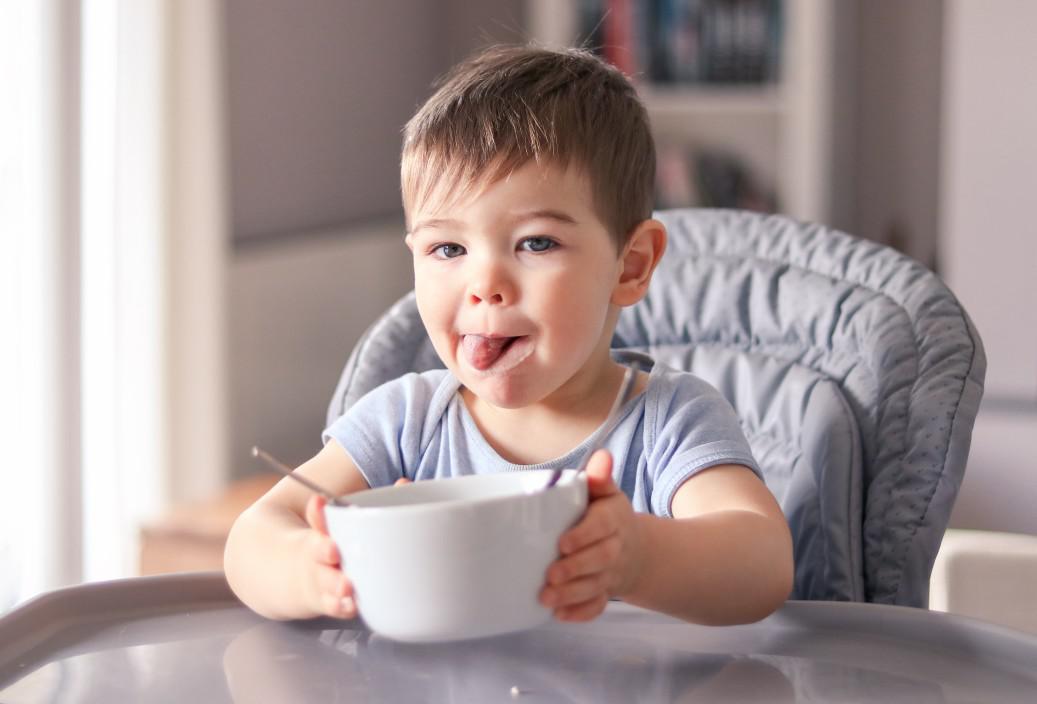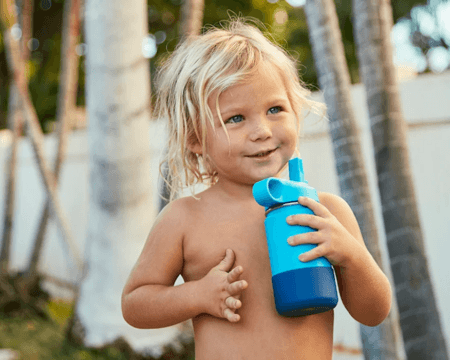Plastic doesn’t belong in our kids’ school cafeterias. Here’s why
Almost all school cafeterias are still using plastic to serve food to children. It's time for a change.
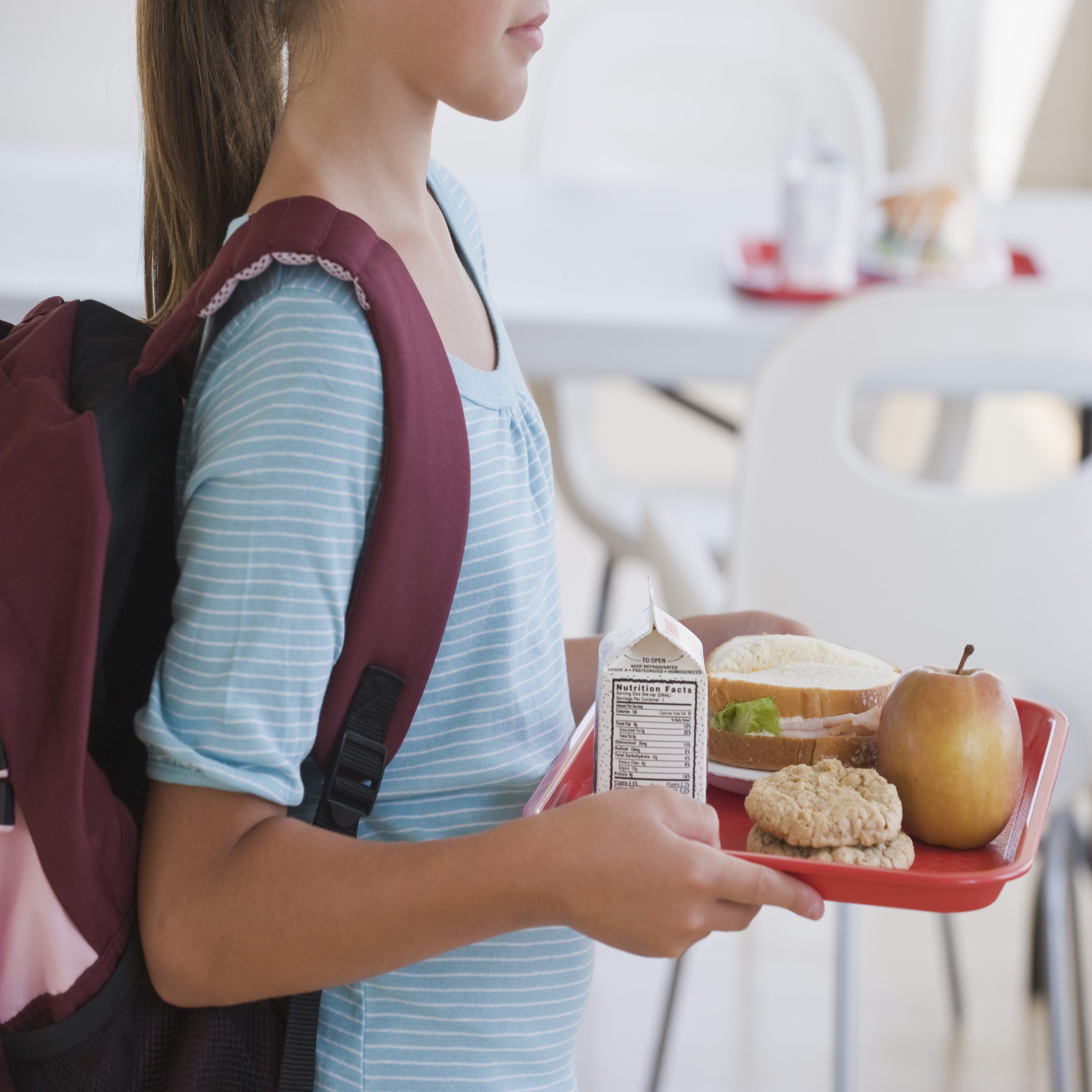
Tetra Images/Getty Images
Hi! I’m Manasa Mantravadi, a pediatrician, mom of three young kids and an Indian immigrant. When I first introduced solids to my twins, I fed them from plastic bowls and with plastic spoons. My mother was horrified by this as she had concerns about the chemicals in plastic transferring into her grandchildren’s food. So one day, while I was at work, she replaced all of my plastic with traditional Indian stainless steel.
I, like many Indians, grew up eating and drinking with steel plates and cups at our family dining table. Five years later, The American Academy of Pediatrics (AAP) warned parents about plastic’s harmful effect on children’s hormones, growth and development.
As a pediatrician, I had access to the knowledge, and as an Indian immigrant, I had the solution for my three young kids. But I realized that many American parents did not, so I launched Ahimsa, a line of safe sustainable stainless steel dishes for kids.
However, on my journey to create products, I quickly understood the laxity of regulation for many food-related products. Today, there are more than 10,000 additives approved by the U.S. Food and Drug Administration (FDA). Many were carried over from the 1950s and many have no research showing they are safe for people to eat or drink. So I set out to work with scientists, physicians, legislators and environmentalists to set a new standard for children’s products.
More than 80% of children’s feeding products on the market are made from plastic, and almost all schools are using plastic to serve food in the cafeterias.
Why plastic is dangerous for kids and the planet
We know plastic is harming our planet. Less than 10% of all plastic ever produced is actually recycled. We see the images of plastic harming marine life in our oceans and overflowing in landfills. But now we also know from large medical organizations like The World Health Organization, AAP and The Endocrine Society that chemicals in plastic disrupt our hormone system—a system that is crucial for health maintenance and in particular, for normal growth and development in children.
When I realized how big of an issue plastic foodware was, I decided that Ahimsa must tackle it at an institutional level. Children dine at home and next most frequently, they dine at school. For some children, all of their meals take place at school cafeterias. There are about 34 million children in the national school lunch program.
Many schools are still using disposable plastic to serve food. Multiply that by 180 days of school and you get a lot of waste that ends up in landfills and a lot of chemical exposure to children’s bodies and brains.
And unfortunately, though the schools that are using reusable plastic cafeteria trays may contribute slightly less to a landfill, they are still unknowingly exposing children to hormone-disrupting plastic chemicals. AAP and pediatric environmental health experts warn parents to avoid using plastic and rather use glass or stainless steel to serve and store food.
They also explain that if you must use plastic, follow these guidelines:
- Don’t use plastic with recycling codes 3, 6, or 7
- Don’t expose plastic to heat like the dishwasher or microwave
- If you notice your plastic foodware is etched or scratched, it’s definitely time to stop using it
Each of these factors increases the chance that the plastic chemicals from the products are transferred into the food the children are eating.
Read more: Stainless steel dishware: Why it might be time to switch from plastic
It’s time schools stopped using plastic foodware
Almost all schools in the U.S. are currently not following the most recent scientific evidence that protects our children’s health in the lunchroom.
It’s not their fault. The FDA’s current regulation of food contact materials is based on science from the 1950s—not from the explosion of scientific evidence about plastic and human health in the past decade. You can imagine why the school lunch tray has not significantly changed since that time.
But it’s time for a change. After all, people and the planet are connected and the lasting impact between the two will be felt not by us, but by our children. Ahimsa is not just a business to me—it’s a chance to change the system, change our thinking and take actionable steps to make a positive impact on the world.
How you can advocate for plastic reduction
As we know, people and the planet are innately connected. We can all agree that plastic is a global threat to human health, our planet and our children’s futures. What we do today matters for our children and our planet. A few minutes of your time can make a big difference for the future.
Make small changes to reduce your family’s plastic use. We invite you to join our #ItMatters movement, aimed at educating and empowering families to create a cleaner, greener, healthier future by making small, simple changes today, because #ItMatters. This is your first call to action!
Reach out to your child’s school about making the switch to stainless steel. We’ve created an email template for parents to send to schools to advocate for change toward a safer, more sustainable option in school lunchrooms.
Champion the Break Free From Plastic Bill. In March of last year, a bill was introduced to the Senate titled Break Free From Plastic Pollution Act of 2021. This bill sets forth requirements and incentives to reduce the production of a variety of products and materials, including plastics and increase efforts to collect, recycle or compost products and materials.
Beginning on January 1, 2023, the bill phases out a variety of single-use products, such as plastic utensils. The bill also sets forth provisions to encourage the reduction of single-use products by establishing programs to refund consumers for returning beverage containers and by establishing a tax on carryout bags. The Environmental Protection Agency (EPA) must publish guidelines for a national standardized labeling system for recycling and composting receptacles. Producers must include labels on their products that are easy to read and indicate whether the products are recyclable, compostable, or reusable. Here are ways to get more involved with this cause.
Contact your members of Congress to support changes to the FDA oversight on plastic use in food contact materials. Here’s how to find your legislators, and we’ve included talking points below.
- By email: You can find your House Representatives by going to House.gov and click “Representatives”, or type your zip code into the “Find Your Representative” box. You can find your Senators by going to Senate.gov and click “Senators” then click “Contact”. Their official websites will have their email contact form and contact information. Template language is below.
- By phone: You can call the U.S. Capitol switchboard at (202) 224-3121 to be connected to your legislators’ offices.
- Template language:
My name is {insert name}. I am a parent/child advocate in {insert city, state}.
I’m calling/writing to urge {insert lawmaker’s name} to pass policies to address the child health impacts of environmental toxins like plastic in food products without delay. This is a public health issue that disproportionately harms children as their bodies and minds are still developing. In addition, children from underserved communities and communities of color are more susceptible to the health risks posed by these environmental toxins.
Lawmakers can promote children’s health first hand by supporting strong environmental policies, including the Break Free From Plastic Pollution Act of 2021 and the climate change framework in the Build Back Better Act. Lawmakers can also work with the FDA to improve and update the oversight of food contact materials so that it is based on recent evidence that classes of chemicals in plastic negatively affect children’s health.
I urge {insert lawmaker’s name} to support the transformational environmental investments included in this bill, as we must protect children from the health harms and protect our planet for generations of children ahead.
Thank you for your time.

